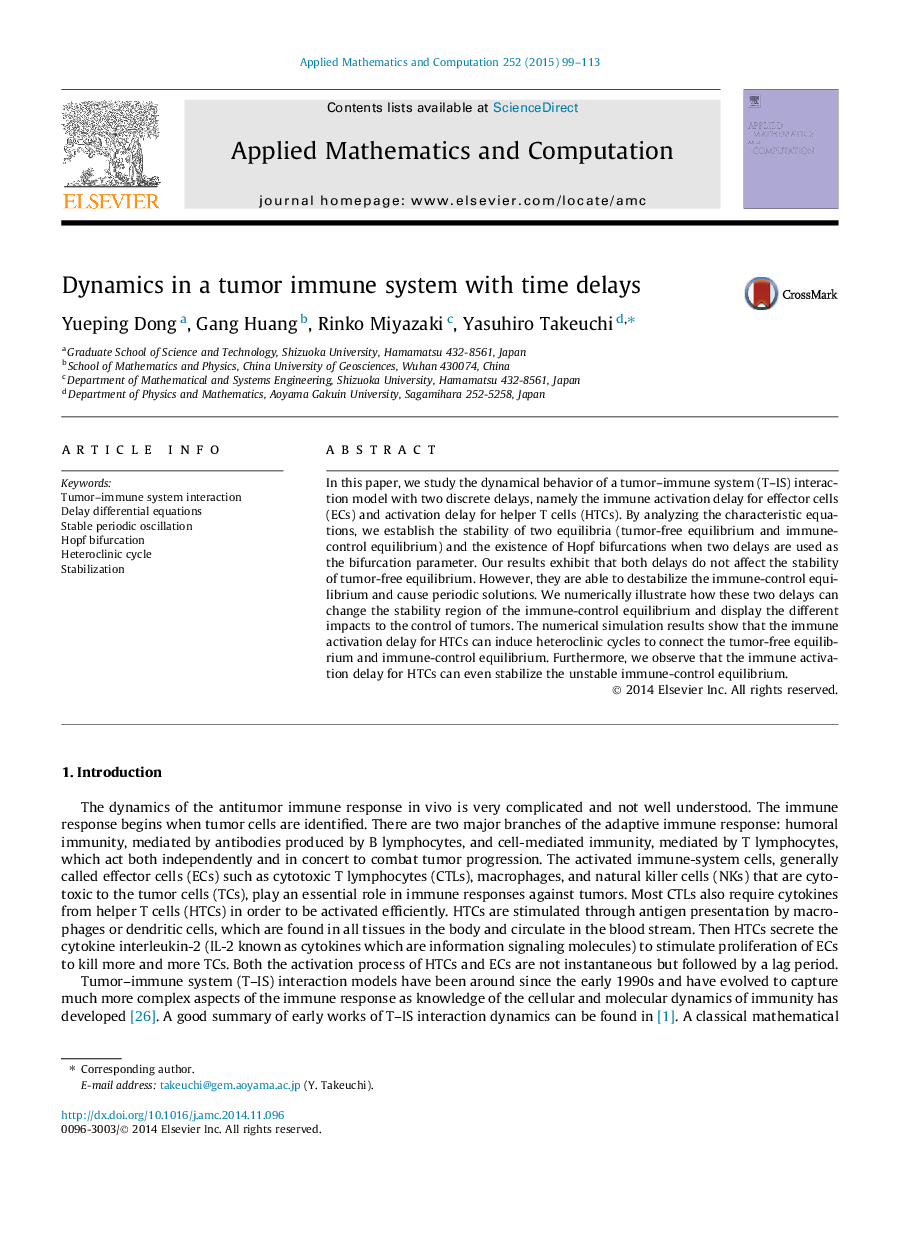| Article ID | Journal | Published Year | Pages | File Type |
|---|---|---|---|---|
| 4627134 | Applied Mathematics and Computation | 2015 | 15 Pages |
In this paper, we study the dynamical behavior of a tumor–immune system (T–IS) interaction model with two discrete delays, namely the immune activation delay for effector cells (ECs) and activation delay for helper T cells (HTCs). By analyzing the characteristic equations, we establish the stability of two equilibria (tumor-free equilibrium and immune-control equilibrium) and the existence of Hopf bifurcations when two delays are used as the bifurcation parameter. Our results exhibit that both delays do not affect the stability of tumor-free equilibrium. However, they are able to destabilize the immune-control equilibrium and cause periodic solutions. We numerically illustrate how these two delays can change the stability region of the immune-control equilibrium and display the different impacts to the control of tumors. The numerical simulation results show that the immune activation delay for HTCs can induce heteroclinic cycles to connect the tumor-free equilibrium and immune-control equilibrium. Furthermore, we observe that the immune activation delay for HTCs can even stabilize the unstable immune-control equilibrium.
